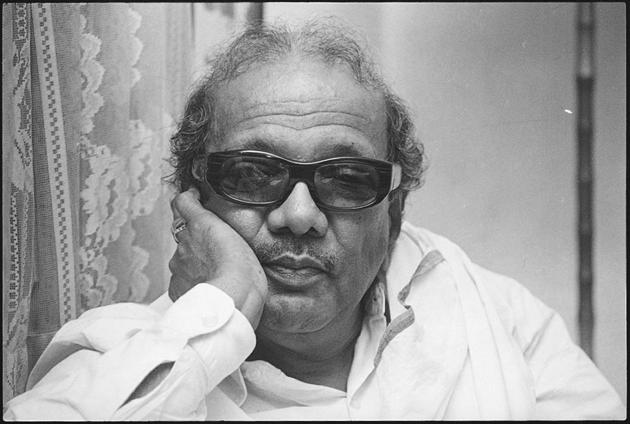Karunanidhi, a literary star who always had the last word
Karunanidhi was the last of the giants who ruled India’s public platforms with a keen acumen of how history, art and politics could convene and he was both the vehicle and engine for it.
There were times a journalist was given an audience in Muthuvel Karunanidhi’s library for an interview at his Gopalpuram residence in Chennai. It was his den, the walls covered with books, the air swirling thick with the dust of the alphabet hanging over a writing desk .

His nephew, Murasoli Maran, then a Union Minister, was next to him. I was told later by his aide that my name sounded confusing and as I represented a “North Indian” media house, Maran, in the thick of national politics then, was also present. As I rose to leave after the interview, Karunanidhi quipped, with his characteristic half-smile, in English, “Time will tell India tomorrow what I really am”.
It was a wisecrack on Anglophone Tamils, a clever parting note and a news headline for the morrow. Journalist, literary star and wordsmith par excellence, Karunanidhi was never far from scripting the moment. He always had the last word.
Karunanidhi was the last of the giants who ruled India’s public platforms with a keen acumen of how history, art and politics could convene and he was both the vehicle and engine for it. In a state that has the unusual distinction of dovetailing artists and politicians, his position was unique. His bete noires, MG Ramachandran and J Jayalalitha, were political giants, but actor-performers turned politicians.
Karunanidhi was the invisible artist, the scriptwriter, whose words and stories regaled and vulcanised actors and audiences alike. He enjoyed the unusual privilege of watching and chronicling his life and, through it. the times of Tamil Nadu for almost a century. He was his own Boswell and Johnson.
His memoir, Nenjukku Neethi (The Heart Craves Justice) is an observation as much as a record of his life and times and of Tamil Nadu and the nation. The prefix Kalaignar, bestowed by actor MR Radha, was never more suitable for an artist than it was for Karunanidhi.
Karunanidhi’s artistic arc encompassed literature, theatre and the movies. His movies are often critiqued as propaganda for the Justice Party and later the Dravida Munnetra Kazhagam. In hindsight, beyond the obvious signposts of party affiliations, they were stories on social justice, secular ideals, poverty alleviation, questioning religion and protesting social and caste oppressions.
In 1952, Karunanidhi nudged Tamil cinema into a new direction with Parasakthi, a searing social commentary on migration, Tamil identity, caste and class issues, the problem of religion and the vulnerability of women. Karunanidhi’s scorching dialogues were brought to life by a then-struggling actor, Sivaji Ganesan. In my time, many boys would recite, with jaw-grinding fervour, Parasakthi courtroom dialogues in Tamil language classes.
Karunanidhi had a keen vision of Tamil identity. In the signposts of the mighty Tamil emperors of yore - monuments and temples - that tower over the skyline even today, he recognised the lasting impact of architecture. Besides his contribution to the World Tamil Conference, he commissioned historical monuments and memorials like the Valluvar statue in Kanyakumari or the Valluvar Kottam in Chennai in honour of the Tamil poet Thiruvalluvar.
Of the many apocryphal tales about the man was one when he was the chief guest at the Bharatanatyam arangetram, or maiden performance, of women from a prominent Chennai Brahmin family. Karunanidhi quipped, “In those days, we danced and you watched; nowadays you dance and we watch”. It was a cheeky reference to the history of classical Tamil dance and its appropriation by upper castes . His passing marks an epoch.
(The writer is a senior journalist)
Get Current Updates on India News, Lok Sabha Election 2024 live, Infosys Q4 Results Live, Elections 2024, Election 2024 Date along with Latest News and Top Headlines from India and around the world.



